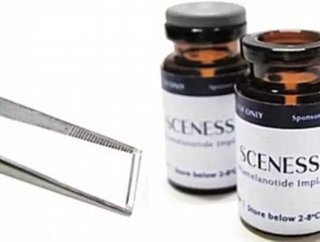Scenesse drug implant tans skin without cancer risk

Sun worshippers around the world are rejoicing after scientists have developed a method to get a three-month long tan without the risk of developing skin cancer.
They have come up with an under-the-skin implant which triggers the production of melanin, a skin pigment that controls its colour and also helps to protects against UV radiation.
As the implant releases the melanin chemical, skin will appear darker to resemble a tan, thereby potentially removing the need for people to use sunbeds.
However, rather than being a deliberate cosmetic invention, the Scenesse drug implant was initially developed to help treat skin conditions such as erythropoietic protoporphyria (EPP).
To read the latest edition of Healthcare Global, click here
- Painkiller addiction rise leads to increase in deaths
- Coriander oil can fight MRSA, E.Coli and salmonella
- Tropical plant extract is the latest cancer treatment
The drug is now undergoing trials to see how it can treat the pigment disorder vitiligo, which is estimated to affect 45 million people across the world.
It is also hoped the Scenesse implant could be a potential treatment for organ transplant patients, who have a severely heightened risk of developing skin cancer.
The implant, which is about the size of a grain of rice, has been developed by manufacturer Clinuvel.
The research was carried out by a team from Manchester University and a professor of experimental dermatology, Lesley Rhodes, said: “Potentially, it does offer an alternative to commercial sunscreens and there are lots of senior scientists who are convinced it is dermatology.”
However, she did point out that more research needs to be until it was made widely available on the market.
In a statement, manufacturer Clinuvel said: “To date, Clinuvel has spent over $80 million developing the Scenesse implant drug product as a therapeutic photoprotective drug for patients who are most at risk from UV and sun exposure.
“Trials to date have raised no serious safety concerns; thus far the drug is well tolerated by patients. The implant drug product has been chosen for its ease of use in dermatology.”
The ability of the implant to prevent skin cancer has been recognised and well received by the world’s biggest cancer charity, Cancer Research.






